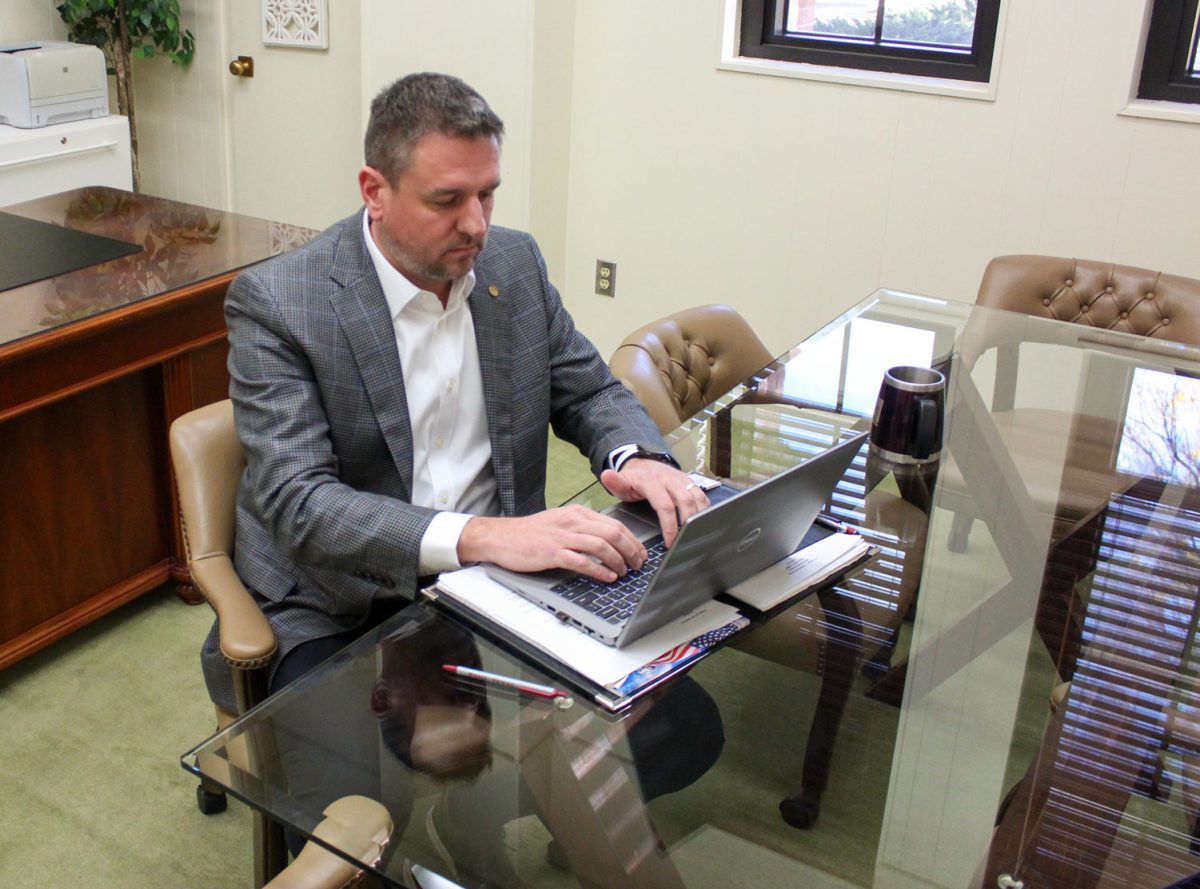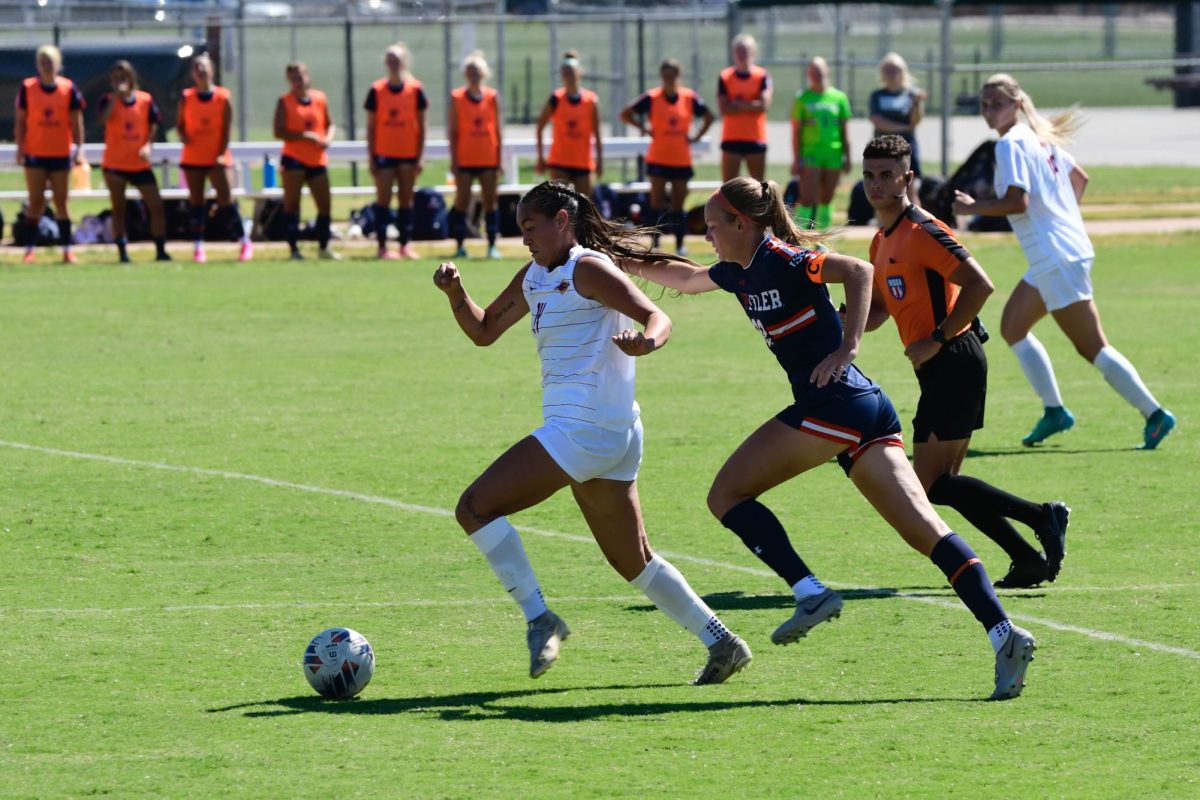Students from all backgrounds across the world travel for a higher education. Each residence hall, food court, and bookstore is filled with a mixture of cultures, races, and ethnicities, but that doesn’t mean every student’s college experience is equal, as many are discriminated against for speaking their native language or for their outward appearance.
Hispanic students make up 16.3 percent of the MSU population, yet Lia Wiley, radiology sophomore, and others don’t feel comfortable speaking Spanish on campus.
“If you speak Spanish out in public, people will look at you weird,” Wiley said.
Wiley recounted a man she saw on campus whose backpack had a button proudly stating, “This is America: Speak American!”
“The United States doesn’t have an official language, so I can speak whatever language I want. I was just so angry,” Wiley said. Wiley thought the button portrayed ignorance and the dismissal of an entire culture.
“People look at you funny when you speak Spanish,” said Lupe Munoz, nursing sophomore.
Joanne Ortega agreed with Munoz and added, “They’ll turn around and look at you.”
Wiley, Munoz and Ortega all feel as though their culture and native tongue is discouraged and not respected on campus
Students aren’t solely discriminated based on the language they speak, according to Ortega and Wiley. Wiley said there’s a hierarchy where lighter-skinned people are seen as more beautiful and superior in the Hispanic community.
“Even indigenous people in telenovelas are portrayed by white-passing people,” Ortega said.
“Because my skin is lighter than others, there’s almost always a shade for me in makeup,” Wiley said. However, since brands like Fenty Beauty have hit the shelves, companies are striving to include darker shades for the industry.
“As a lighter skinned black woman, I’m treated better than my darker skinned counterparts,” said Zaquera Wallace, pre-vet junior. “Although we’re the same ethnicity, I’m treated better because I was born with lighter skin than they were. I was told I’d fit in better with society.”
Wallace said she doesn’t believe she’s better than anyone in her race, but she said she’s constantly been told darker skin is linked with being inferior in her culture.
“There’s absolutely a standard on what is good hair. As a mixed individual, it’s preferred that I have ‘good hair’ and not kinky black hair. The more kinky, the more unprofessional,” Wallace said. ‘Good hair’ is a term used to describe more relaxed curl patterns, which are seen as more desirable in the black community.
“The kinkier your hair is, the less attractive you are. If your hair defies gravity, it isn’t as accepted as other hair. You’re encouraged to wear a wig, sometimes,” Wallace said. “Lately, I’ve been seeing a lot of positivity movements for black women’s natural hair, though. I’m really happy to see that.”
Wiley said most of the discrimination she has experienced on campus had nothing to do with her race. “I was discriminated against more so because I’m in PRIDE and I’m LGBT. Not so much because I’m not white,” she said.
Iana Bullard, a radiology sophomore, said she experienced discrimination in a different kind of way.
“I don’t technically notice it. Sometimes I do get odd looks or a different type of attitude when people are approaching me,” Bullard said. “I don’t know if it’s because of my race or if it’s because I have a lip piercing.”
Bullard is from the Caribbean, is part of the LGBT community and said the culture here is different from her home. She’s noticed differences and has since adapted to the social environment.
“Sometimes it feels like high school here,” Bullard said, explaining she’s felt judged by the people around her. “We have our festivals and holidays… but besides that, people look down on you for talking with your accent. Things like that.”
Being judged for the things you can’t change frustrates students, like Kerrigan Reyes.
“Once a girl in my class said that ‘crazies’ shouldn’t have guns,” said Kerrigan Reyes, a psychology sophomore. “I’m schizoaffective, I have a form of schizophrenia and I still know that killing people is wrong. I still know the difference between what’s wrong and what’s right.”
Reyes talked to the girl and discussed that mental illness doesn’t mean a lack of moral compass. Being labeled as a ‘crazy’ frustrated her due to the fact it implied she had no sense of right or wrong.
Some things, like Bullard’s lip piercing, are personal style choices that students have felt discrimination for.
Kerrigan Reyes feels like the way they present themselves isn’t accepted. Reyes has many piercings and tattoos, and people tell her they don’t like them.
“I have too many and I’ve been told. I’ve been told that it doesn’t look good, it looked better before, that I should take them out. It doesn’t feel good because they really boost my confidence,” Reyes said. “People say they shouldn’t hang out with me because I have too many piercings and you don’t want to be seen with the wrong crowd.”
Reyes said her body is hers to do what she wants with and if piercings make her happy it shouldn’t matter to other people.
“They say that I should take out my piercings so that I’ll look better,” she said, but she refuses to do so.
“I tell them, honestly, this is what causes my self-esteem to rise. Each piercing makes my self-esteem higher. It makes me feel good, lovable, and pretty. They say I look pretty without them, but it’s my body.”
Reyes said the input of other people doesn’t matter to her when it comes to dating or finding people to be friends with. “I want somebody who likes me for me, regardless of piercings or not,” she said.
“I don’t really think anyone cares what you’re wearing,” Wiley said. “We’re all just trying to get our degree.” Wiley said students can dress how they’d like and that this campus is freer than other places.
“I feel like a lot of people here are friendly when they need to be. I think it’s an individual effort to learn about cultures,” Bullard said.
Bullard believes a part of ending discrimination lies in educating people about other cultures and being aware.
![]()
RELATED STORIES:
- The slow transition to becoming a Hispanic serving institution
- Ethnicity’s role in multicultural sororities
- Baptist Student Ministry members discuss discrimination in religious organizations
- LGBTQ: avoiding the trigger point
- Rednecks: ‘It’s just a way of life’; ‘You get to yell, ‘yee yee’ whenever
- Students fate uncertain pending a possible end to DACA
- Priddy Scholars brings new opportunities to first year students
- Girls choose their sorority based on fit, regardless of skin tone
- Greeks prey to stereotypes; still a ‘necessity’
- Global enrollment continues to grow thanks to university’s outreach program
- Office becomes home to new director and students
- Brother realizes fraternity not understanding, welcoming
- Senate Bill 4 changes the way officials handle immigration












